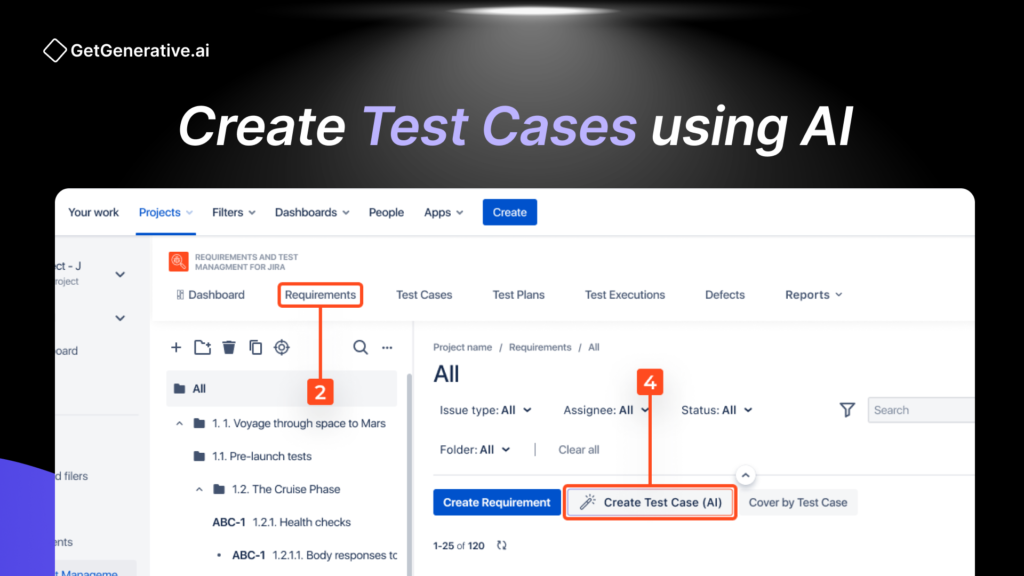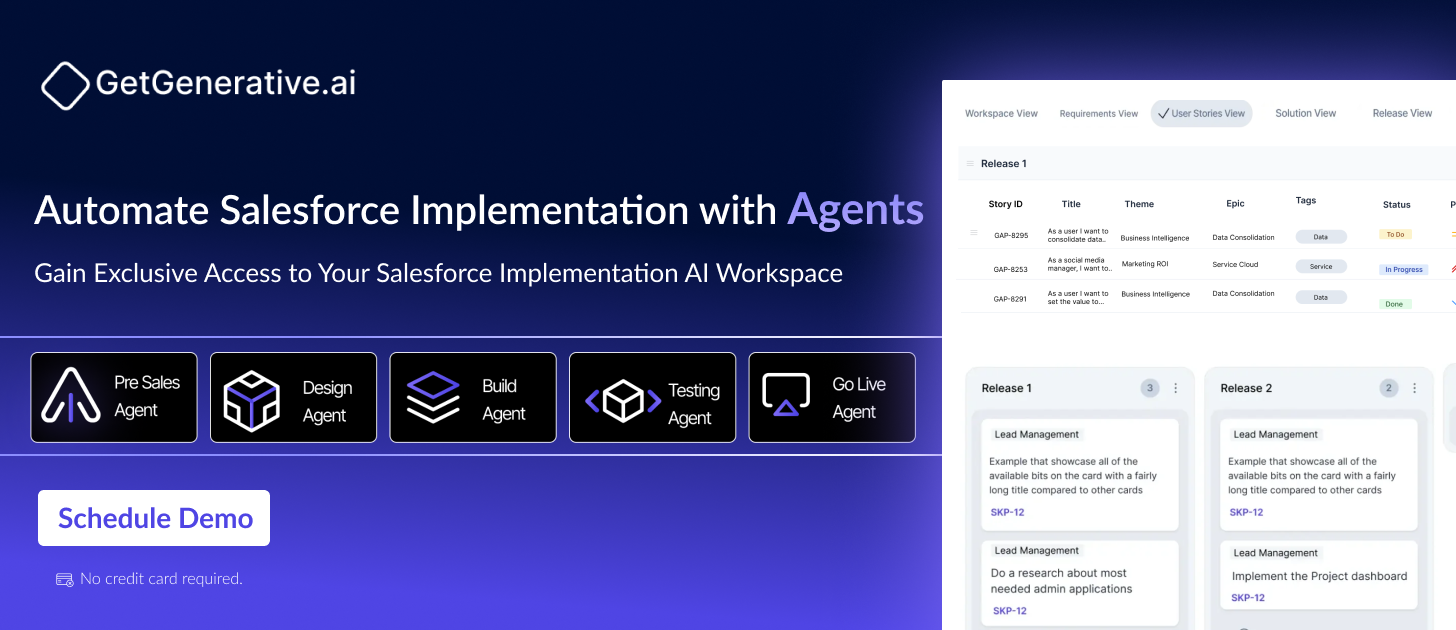Create Test Cases using AI
Manually creating test cases can be an exhaustive and time-consuming process. With software systems growing increasingly complex, testing every possible scenario demands effort and precision.
That’s where Artificial Intelligence (AI) steps in, transforming the way test cases are created. AI is reshaping software testing by automating repetitive tasks, enhancing accuracy, and providing comprehensive test coverage.
What Are Test Cases?
Test cases are structured documents that outline specific conditions, inputs, and expected outcomes to verify whether a software application performs as intended. They are essential to uncover bugs, validate functionalities, and ensure a seamless user experience. Traditionally, crafting test cases required human testers to painstakingly analyze requirements, scenarios, and edge cases—a process prone to human error and oversight.
The Rise of AI in Software Testing
AI has revolutionized many industries, and software testing is no exception. By leveraging technologies like Natural Language Processing (NLP) and machine learning, AI can interpret requirements, identify potential scenarios, and generate test cases automatically. This advancement is not just about automation; it’s about amplifying the tester’s ability to ensure quality at scale.
Why Use AI for Test Case Generation?
Time-Saving Efficiency
Manually creating test cases is tedious and slow. AI accelerates this process by analyzing requirements and generating comprehensive test cases within minutes. This means testers can focus more on higher-value tasks, like exploratory testing, rather than mundane documentation.
Comprehensive Test Coverage
AI can identify scenarios and edge cases that human testers might overlook. With algorithms capable of analyzing vast datasets, AI ensures that even the most unlikely scenarios are tested. This leads to more robust software applications that perform well in real-world conditions.
Error Reduction
Unlike humans, AI doesn’t suffer from fatigue or oversight. AI-generated test cases are consistent and less prone to errors. This accuracy ensures that critical functionalities aren’t missed, reducing the risk of costly bugs slipping into production.
Enhanced Collaboration
AI tools often come with features that promote teamwork, such as shared repositories and version control. Teams can easily review, modify, and track test cases, fostering better collaboration between developers, testers, and product managers.
Also Read – Generative AI vs. Predictive AI: What’s the Difference?
How AI Creates Test Cases
Natural Language Processing (NLP)
AI uses NLP to interpret textual requirements and user stories. By analyzing language patterns, it extracts key functionalities and scenarios to generate relevant test cases. This process bridges the gap between human-written requirements and machine-executable test plans.
Automated Test Step Generation
Beyond creating test cases, AI assists in drafting detailed test steps. It provides clear, actionable instructions, such as steps to perform, expected results, and preconditions. This ensures consistency across all test cases.
Edge Case and Risk Analysis
AI excels at identifying edge cases—rare or unlikely scenarios that may cause system failures. By analyzing historical data and system behavior, it predicts potential vulnerabilities and prioritizes them in testing. This proactive approach minimizes risks and ensures software stability.
Tools for AI-Powered Test Case Creation
Top Platforms in the Market
Several AI-driven tools have emerged to simplify test case creation. Platforms like BrowserStack, AgileTest, and Testim leverage cutting-edge AI to generate test cases, provide risk analysis, and automate test management. Each tool offers unique features, making it crucial to choose the right one based on project needs.
Choosing the Right Tool
When selecting an AI-powered tool, consider factors like ease of integration, customization options, scalability, and cost. The right tool should align with your team’s workflow and enhance, rather than disrupt, your testing process.
Also Read – AI Ethics Maturity Model
How to Generate Test Cases Using AI
Here’s a step-by-step guide on how AI generates test cases to fit specific project needs:
Define the Scope and Context
To generate relevant test cases, start by defining the scope of testing. Provide detailed inputs such as:
- Prompts: Write clear, concise descriptions of the scenarios or functionalities to be tested.
- Requirement Files: Upload detailed documents, such as PDFs or spreadsheets, outlining system requirements.
- Folders of Existing Test Cases: Share related test cases to maintain consistency and avoid duplication.
This input helps AI understand the context, ensuring that the generated test cases align with your requirements.
Generate Test Cases
Once the context is set, the AI analyzes the input and creates test cases with predefined attributes like titles, descriptions, priorities, and expected results. Many tools also categorize test cases for better organization.
Review and Refine
AI-generated test cases are presented for review. Teams can evaluate the test cases, deselect irrelevant ones, and modify them if needed. This step ensures that the final set of test cases is tailored to the project’s requirements.
Autofill Test Details
AI doesn’t stop at generating test cases. It assists in filling additional details like preconditions, step-by-step instructions, and test data. This autofill feature speeds up documentation while maintaining accuracy.
Benefits of Using AI in Test Case Creation
Reduced Time to Market
By automating test case generation, AI helps reduce the time it takes to prepare for testing. Teams can quickly move from planning to execution, accelerating the overall development lifecycle.
Increased Productivity
AI allows testers to focus on strategic tasks, such as exploratory testing and defect analysis, rather than repetitive documentation work. This boost in productivity leads to a more efficient QA process.
Cost Savings
While implementing AI tools might have an upfront cost, the long-term savings are significant. Automated test case generation reduces the need for extensive manual effort, cutting down labor costs.
Enhanced Quality Assurance
AI ensures comprehensive test coverage, identifying potential bugs and edge cases that manual testers might overlook. This leads to a higher-quality product with fewer post-release issues.
Also Read – How Much Can You Earn as an AI Consultant in 2025?
Challenges and Limitations
While AI offers numerous advantages, it’s not without challenges:
- Dependence on Input Quality: AI relies heavily on the quality of the input provided. Poorly defined prompts or incomplete requirements can result in irrelevant test cases.
- Limited Context Understanding: AI might miss nuances in user requirements that a human tester would naturally grasp.
- Integration Complexities: Adopting AI tools requires seamless integration with existing workflows and tools, which can be challenging for some teams.
Future of AI in Test Case Generation
As AI technology continues to evolve, its role in software testing will expand. Advanced algorithms will offer better context understanding, improved accuracy, and even predictive testing capabilities. The integration of AI with DevOps pipelines will make real-time, automated testing a reality, further enhancing software quality and reducing development cycles.
Conclusion
AI is revolutionizing how test cases are created, making the process faster, more accurate, and highly efficient. By leveraging AI-powered tools, teams can save time, reduce errors, and ensure comprehensive test coverage. As the technology matures, the possibilities for enhancing software testing are endless, making AI an indispensable asset in the QA toolkit.
Streamline your Salesforce implementation with GetGenerative.ai – AI-powered Workspace + Agents to manage everything from Pre-Sales to Go-Live. Explore now!
FAQs
1. Can AI replace manual testers entirely?
AI is a powerful tool that complements manual testing, but it cannot fully replace human testers. Tasks requiring creativity, judgment, and critical thinking still benefit from human expertise.
2. What types of test cases can AI generate?
AI can generate a wide range of test cases, including functional, performance, regression, integration, and edge cases. It also assists in exploratory testing.
3. How accurate are AI-generated test cases?
AI-generated test cases are highly accurate when provided with clear and comprehensive inputs. However, human review is essential to ensure context alignment.
4. What are the costs associated with AI-powered test case tools?
The costs vary depending on the tool, features, and usage scale. Most platforms offer flexible pricing models, including subscriptions and pay-per-use options.
5. How do I get started with AI for test case creation?
Start by exploring AI-powered tools like BrowserStack, AgileTest, or Testim. Define your testing requirements, provide the necessary inputs, and let AI generate the test cases.




